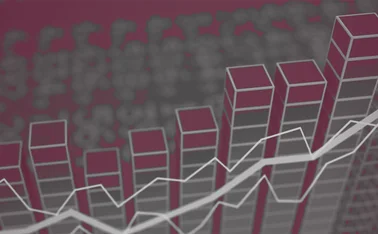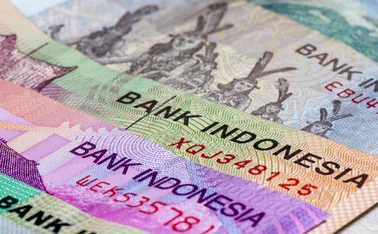
Building a green Silk Road


The Silk Road International Association (SRIA) was launched in 2016 by the International Finance Forum (IFF) with support from the UN and the Asian Infrastructure Investment Bank. Its task is to carry forward the ‘Silk Road spirit’ of peace and co-operation, openness and inclusiveness, mutual learning and benefit, and win-win outcomes. For the past four years, the SRIA has provided a mechanism that boosts non-governmental collaboration and dialogue to advocate the Belt and Road Initiative (BRI). The association was established in the same year President Xi Jinping called for green development and efforts to build a “green Silk Road”. The following year, at the 2017 Belt and Road Forum for International Cooperation, President Xi said: “We should pursue the new vision of green development and a way of life and work that is green, low-carbon, circular and sustainable. Efforts should be made to strengthen co-operation in ecological and environmental protection and promote ecological civilisation so as to realise the goals set by the [UN] 2030 Agenda for
Sustainable Development.”
In 2018, the China Council for International Cooperation on Environment and Development explained that the essence of a green BRI is to integrate green development and ecological and environmental protection into its every aspect. The following year, the BRI International Green Development Coalition was launched to bring together environmental expertise and ensure that the BRI brings long-term green and sustainable development to all countries involved.

The BRI has been recognised by the international community as an important contribution to the implementation of the UN’s 2030 Agenda for Sustainable Development. In 2019, UN secretary-general António Guterres pointed out that the five pillars of the BRI are intrinsically linked to the UN’s 17 Sustainable Development Goals (SDGs); and UN General Assembly president María Fernanda Espinosa said the BRI is an example of effective international co‑operation for
sustainable development.
In 2020, the Journal of Ecosystem Health and Sustainability reported that China had around 36 renewable energy investment projects in BRI countries. The journal also noted that, as the world’s largest producer of renewable energy, China’s green energy investment and capacity co-operation with BRI countries has played a positive role in promoting the sustainable development of the host country.
Pursuing a green revolution
China was arguably the first economy to recover from the economic slump caused by the effects of the Covid-19 pandemic. As China restarts its economy, countries along the BRI routes are likely to benefit from post-pandemic co-operation. This co-operation will need to adhere to the ‘new normal’, and form part of an entire body of civic behaviour to help prevent a resurgence of the virus. At the UN general debate commemorating the organisation’s 75th anniversary, President Xi said: “Covid‑19 reminds us that humankind should launch a green revolution and move faster to create a green way of development and life, preserve the environment and make Mother Earth a better place for all. Humankind can no longer afford to ignore the repeated warnings of nature and go down the beaten path of extracting resources without investing in conservation, pursuing development at the expense of protection, and exploiting resources without restoration.”
President Xi’s speech gave the broad strokes of green development in the post-pandemic era and invoked elements of the Paris Agreement on climate change, which aims to keep the increase in global average temperature to below 2° Celsius above pre-industrial levels, and to limit the increase to 1.5°C. Under the agreement, each country must pledge money – or nationally determined contributions (NDCs) – to mitigate global warming. President Xi also committed China to scaling up its intended NDCs and achieving carbon neutrality before 2060. He called on all countries to pursue green development and achieve a green recovery in the post-Covid‑19 era.
President Xi’s words have been a strong signal of a green post-pandemic BRI. It is therefore fitting that the IFF’s most recent summit was focused not just on post-pandemic financial co-operation, but also sustainable development. The UN Environment Programme (UNEP) insists that investing in a green pandemic recovery makes economic sense. Spending on renewable energy can generate 2.5 times more jobs than fossil fuels. Cleaner air can reduce the burden of disease from air pollution, which costs some countries 7% of their GDP. Investing US$1 in restoring ecosystems can generate $9 by returning ecosystem services and livelihoods.
According to the Green Belt and Road Initiative Center, 2020 saw a relative increase of non-fossil fuel-related BRI energy investments. In the first six months of 2019, 56% of energy investments were fossil fuel-related, but that share dropped to 42% in the same period in 2020. Non-fossil fuel-related energy investment dominated BRI energy investments at 58% in the first half of 2020.
In September 2019, state councillor and foreign minister Wang Yi announced the release of the Chinese Academy of Sciences’ Big Earth data in support of the Sustainable Development Goals report 2020. The report shows the use of cutting-edge technological innovation in digital technologies to facilitate achievement of the SDGs. It demonstrates China’s firm commitment and contribution to bridging the digital divide and implementing the 2030 Agenda.
Only users who have a paid subscription or are part of a corporate subscription are able to print or copy content.
To access these options, along with all other subscription benefits, please contact info@centralbanking.com or view our subscription options here: http://subscriptions.centralbanking.com/subscribe
You are currently unable to print this content. Please contact info@centralbanking.com to find out more.
You are currently unable to copy this content. Please contact info@centralbanking.com to find out more.
Copyright Infopro Digital Limited. All rights reserved.
As outlined in our terms and conditions, https://www.infopro-digital.com/terms-and-conditions/subscriptions/ (point 2.4), printing is limited to a single copy.
If you would like to purchase additional rights please email info@centralbanking.com
Copyright Infopro Digital Limited. All rights reserved.
You may share this content using our article tools. As outlined in our terms and conditions, https://www.infopro-digital.com/terms-and-conditions/subscriptions/ (clause 2.4), an Authorised User may only make one copy of the materials for their own personal use. You must also comply with the restrictions in clause 2.5.
If you would like to purchase additional rights please email info@centralbanking.com







